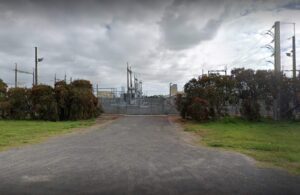Digital Passports Can Revive Old Solar Panels Instead of Recycling
Australia is grappling with a significant electronic waste challenge stemming from ageing solar panels, but a recent study suggests that testing and certifying older technology for reuse could provide a viable solution.
The collaboration between industry stakeholders and government entities is essential to facilitate the redeployment of these panels. A proposed certification process, along with digital passports, could pave the way for this initiative.
Research Insights on Solar Panel Reuse
Researchers from the University of South Australia have put forward these recommendations in a study published in the journal Sustainability, which reviewed over 63 publications on the subject. Their findings come in light of predictions from the Australian Energy Council, which estimates that 280,000 tonnes of solar panels may reach the end of their operational life by 2025, coinciding with a surge in rooftop solar installations across Australian households.
Benefits of Reusing Over Recycling
The study, titled Certification for Solar Panel Reuse, explored the challenges and opportunities associated with reusing solar technology instead of opting for recycling. The researchers highlighted that while recycling is advantageous, it generates more emissions due to the energy required to dismantle and process materials.
“Reusing solar panels can significantly reduce emissions by extending their lifespan and decreasing the demand for new manufacturing,” the research indicated.
Challenges to Overcome
Despite the potential benefits, several obstacles hinder the large-scale reuse of photovoltaic (PV) panels. These include the declining prices of solar technology, insufficient government incentives for panel reuse, and limited access to testing facilities. Ishika Chhillar, a PhD student at the University of South Australia, noted, “The large scale reuse of PV panels faces technical, economic and regulatory barriers.”
Chhillar emphasised that all stakeholders—industry, government, academia, and consumers—acknowledge the necessity of overcoming these barriers. With appropriate frameworks, Australia could significantly extend the life of its solar panels.
Proposed Solutions for Certification
One innovative solution involves issuing digital passports for decommissioned solar panels, allowing for repairs or refurbishments as necessary. Panels would then receive gold, silver, or bronze certifications based on their efficiency. For instance, bronze-rated panels with less than 60 per cent efficiency would be earmarked for recycling, while those rated gold or silver could be repurposed for residential use or community projects.
According to Chhillar, a national testing and rating process could lead to substantial savings and reduced environmental waste. “Currently, the absence of standard certification for used panels leaves buyers and installers relying solely on the seller’s claims, but an official certification process would change that,” she explained.
Building Trust Through Certification
Establishing a certification system could bridge the trust gap, transforming reused panels from a risky choice into a reliable and standardised product category. Co-author Assoc Prof Sukhbir Sandhu pointed out that recording the historical usage of solar panels in a digital passport would enhance confidence among future users. She suggested that this process could draw inspiration from existing product stewardship schemes in other sectors, such as electronics and batteries.
The Growing Demand for Solar Energy
With over four million Australian households now equipped with rooftop solar panels, as reported by the Australian Energy Market Operator, the expected lifespan of these panels ranges from 20 to 30 years. This growing reliance on solar energy underscores the urgency of addressing the impending electronic waste crisis.






